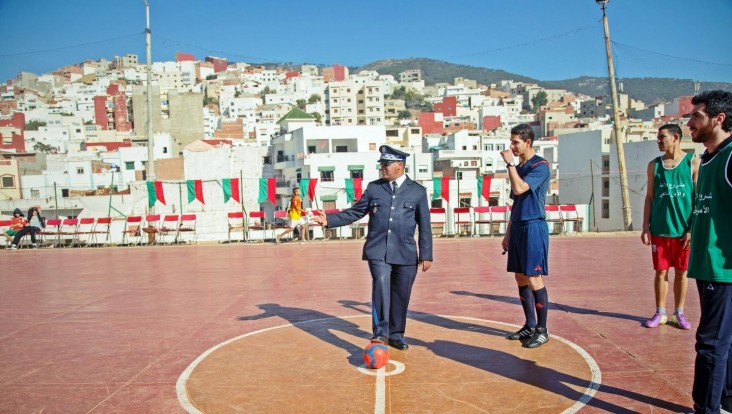
Quick Facts
- Program Duration: February 2015 – January 2018
- Budget: $4.9 Million
Context
Clear channels of communication between the police and citizens are vital building blocks for any democratic society. A USAID participatory youth assessment conducted in the neighborhoods of Tangier and Tetouan in northern Morocco revealed that youth felt that their sense of insecurity in their community could be attributed to a lack of positive police presence. In an effort to bolster democratic participation, the Government of Morocco has engaged a series of reforms that prioritize the direct engagement of police with local authorities and citizen groups in order to better respond to citizen needs, and improve the force’s overall efficiency.
USAID Response
USAID is supporting the Kingdom of Morocco’s reform efforts through a three-year community policing pilot project in designated communities of Tangier and Tetouan. Community policing is both a philosophy and an organizational strategy that emphasizes partnership and collaboration between police and communities with the objective of identifying and jointly responding to problems of crime, disorder and fear of victimization. The project comprises three strategic areas:
- Strengthening community capacity of community-based associations and their role in designated neighborhoods to assist in resolving crime and safety issues.
- Training and technical assistance to commanders and line personnel of the Prefectures of Tangier and Tetouan.
- Facilitated joint activities between civil society organizations, residents, local authorities, and police to build trust and collaboration between community actors.
Expected Results
Previously in these neighborhoods, safety and security issues were not openly discussed, but now residents feel comfortable raising their concerns in an open forum with local police. Through the project, residents from diverse backgrounds have joined together, gained new skills, and are playing a crucial role with local police to help improve security in their communities. COPA has trained 250 community leaders to facilitate dialogue between residents and local authorities and organize community-building activities, which stresses inclusion: women make up at least half of the training group and the majority of participants are under 35 years old. From organizing soccer tournaments, neighborhood clean-up days, and even school field trips to the local police station, COPA is building the skills of the police and local residents to help them work together to improve their community’s safety and security. To date, COPA’s activities have reached nearly 7,000 people.







Comment
Make a general inquiry or suggest an improvement.